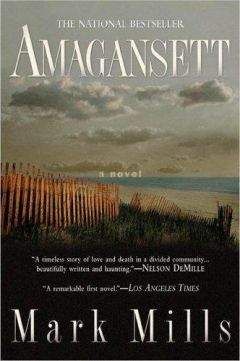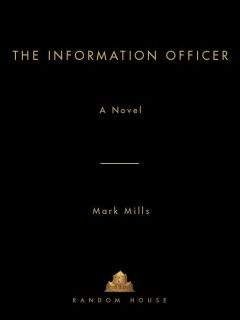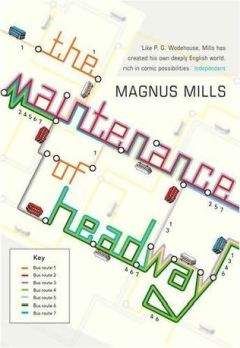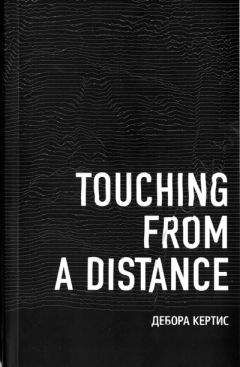Mark Mills - Amagansett
На электронном книжном портале my-library.info можно читать бесплатно книги онлайн без регистрации, в том числе Mark Mills - Amagansett. Жанр: Прочее издательство неизвестно, год 2004. В онлайн доступе вы получите полную версию книги с кратким содержанием для ознакомления, сможете читать аннотацию к книге (предисловие), увидеть рецензии тех, кто произведение уже прочитал и их экспертное мнение о прочитанном.
Кроме того, в библиотеке онлайн my-library.info вы найдете много новинок, которые заслуживают вашего внимания.

Mark Mills - Amagansett краткое содержание
Amagansett читать онлайн бесплатно
The figure had made no attempt to move, but had just stood there, facing the oncoming car.
‘She stepped into the road,’ gasped Lillian, ‘just stepped into the road…Oh my God.’
Manfred was aware of a sound filling his head, building in volume. It was the scream of the Packard’s reverse gear. Justin drew alongside.
‘Wait here,’ he said.
He swung the Packard round, the headlights cutting through the night, settling on something in the hedgerow, surprisingly close. Despite appearances, the impact had propelled the body some considerable distance back down the road.
‘Don’t look,’ said Manfred as Lillian made to turn.
Justin was out of the car now, approaching on foot. There was no need to get too close. The angle of the limbs placed the matter beyond any doubt.
Justin hurried over. ‘Manfred, look at me. I said look at me. You have to follow me. Can you do that?’
His hands were trembling, but he appeared to have control of them. ‘Yes,’ he said.
Lillian only spoke once on the seemingly endless drive through the back roads to their house on Further Lane.
‘What are we going to do?’ she asked.
‘Richard will know.’
Richard was asleep, flat on his back in his bed, arms by his side, like a body lying in state. Manfred was a little surprised to find him wearing a hair net, but any embarrassment Richard might have felt was soon forgotten as Manfred described the events of the past fifteen minutes. When he was done, the questions began, rapid-fire: Did anyone at the yacht club know where you were going? Yes. Was there anyone else at Justin’s house? No. Was the girl killed? Yes. Did you take her pulse? No. How’s Lillian taking it? How do you think? Is Gayle back yet? No, I don’t think so.
Richard thought for a moment then said, ‘Move the car into the garage then pour yourself a large whiskey. I need a little time to think.’
A little time proved to be less than ten minutes, during which he made a call from his room, judging from the small ping given off by the phone in the drawing room. When he came downstairs he had swapped his silk pajamas for slacks and an open-necked shirt, crisp and clean as always.
Justin was seated beside Lillian on the sofa, his arm round her, comforting her. Richard deposited himself in a chair and waited for her to compose herself.
‘You said to Manfred that she stepped into the path of the car.’
‘Yes,’ said Lillian.
‘Deliberately?’
‘I don’t know. That’s how it seemed.’
Richard turned to Manfred. ‘You’ve been drinking, I assume.’
‘Yes.’
‘If you’d been sober, would it have made any difference?’
‘I don’t know. I don’t think so.’
‘Lillian?’
‘No. It all happened too quickly.’
Manfred suddenly saw it, Richard’s strategy. He was playing to Lillian, the weak link in the chain, steering responsibility away from them and on to the girl, planting the belief that their only error lay in being in the wrong place at the wrong time.
‘This will destroy you, you know that, Manfred, don’t you?’
The words were meant for Lillian’s ears and Manfred dutifully took his cue from them.
‘There was nothing I could do.’
‘That’s clear.’
‘They were racing,’ said Lillian.
‘And who was the one who told me to overtake in the first place?’ retorted Manfred.
‘I’m not sure you should be looking to blame each other,’ said Richard.
‘If we’re doing that,’ interjected Justin, ‘then I’m at fault, for making fun of your car in the first place.’
‘We’re all to blame,’ said Lillian. ‘A girl is dead!’
‘Maybe that’s exactly what she intended,’ said Wakeley.
‘We don’t know that.’
‘Lillian, listen to me.’ Richard’s tone was calm, measured. ‘You see a car hurtling towards you at night on a country lane, what do you do? You hug the hedgerow; you do not step out in front of it just when it draws level with you. Think about it. From where I’m sitting, I’d say you’re lucky to be here at all. She might have killed you both.’
It was clear from Lillian’s expression that he’d convinced her, for now at least.
‘Here’s what’s going to happen,’ said Richard. ‘And it’s going to have to happen fast.’
The mastery of the plan swiftly hatched in his bedroom only became clear at a later date; for now they just did as they were told. Justin was instructed to return home by a roundabout route. While Manfred and Lillian hurriedly packed their bags, Richard took himself off to the garage, where he examined the damage to the Chrysler and cleaned off the gore as best he could. Fortunately, the nearside headlight was intact, reducing the risk of being pulled over by the state troopers on the long drive back to the city.
The main danger now was that Gayle would return, catch them in the act, and have to be won over. Fortunately, as they later discovered, she had chosen to go home with the handsome but dull copyright lawyer who’d been making a play for her at the dinner dance.
As instructed, they kept to the back roads until clear of Southampton. Soon after, they telephoned Richard at the house. He gave them the address of the gas station in Jamaica Bay, where they were met by the two men.
Manfred waited a couple of days before informing the garage that housed and serviced the Chrysler that it had broken down on the outskirts of the city, by which time he had received details of where it could be found. The Chrysler was duly towed back into the city, its bodywork as new, but with a clogged carburetor.
As long as they all stuck to the story, there was no reason it shouldn’t hold up. No one could attest to Manfred and Lillian’s presence in East Hampton during the critical, incriminating early hours of Sunday morning; and the temporary absence of the Chrysler could now be convincingly accounted for.
That was pretty much the last they heard of the matter. A few weeks later, Justin was visited by a local cop following up on the case, working his way through the guest list for the Devon Yacht Club dinner dance. Justin confirmed that Manfred and Lillian had visited him a little after nine on the Saturday night in question, returning to their house on Further Lane less than an hour later—well before the time of the girl’s death.
And that had been that; at least until Lillian had started behaving strangely. Now the ghost of Lizzie Jencks was back to haunt him in yet another guise—that of a local fisherman—only this time it just didn’t make any goddamn sense.
‘It doesn’t make any goddamn sense,’ said Manfred, lighting another cigarette off the first, not wanting to mess around with matches in the stiff breeze coming off the ocean and rustling the leaves above their heads.
‘It makes sense, we just can’t see it yet.’ Richard paused, thoughtful. ‘How does he know? Either you told him, I told him, or Justin did.’ He paused. ‘Or he heard it from Lillian.’
‘What are you saying?’
‘I’m saying he wasn’t there when it happened; otherwise why wait till now to say something?’
Richard paced back and forth for a while, as he often did when working through problems.
‘Yes. Why wait till now? That’s the key. Because he’s only just found out. But how?’
‘All I’m hearing is more questions.’
Richard ignored him, pacing, pacing, head bowed. He stopped abruptly and looked up.
‘You know, I doubt he really knew for sure, just enough to bluff it out of you.’
‘I didn’t admit to anything. I didn’t say anything.’
Not true. He had messed up with that line about hurling accusations around.
Richard must have read the lie in his eyes. ‘It doesn’t matter,’ he said. ‘He would have known from your look when he sprang her name on you.’
Manfred stared at the ocean. ‘Christ, what have we done, Richard?’
‘No more than we had to. It’ll be all right.’
‘I’ll pay you whatever it takes.’
A cloud of disappointment passed across Richard’s face. ‘It’s not about the money, Manfred. It never has been.’
Richard looked away suddenly, as if embarrassed by his words.
‘I need time to think this through,’ he said, ‘find out more about this Conrad Labarde.’
‘He’s a veteran, I can tell you that.’
‘How do you know?’
‘He’s got a regimental tattoo on his arm, some kind of arrowhead, a red arrowhead.’
‘Are you sure? A red arrowhead?’
‘Yes I’m sure. Why?’
‘It’s nothing,’ said Richard, not wholly convincingly.
Twenty-Four
Conrad knew something was wrong when Rollo failed to show for work first thing Monday morning. He was never late. If anything, he was early. Conrad would often wake to find him sitting on the deck, waiting patiently, whittling a piece of driftwood or just staring into the distance.
Maybe he was ill. Unlikely. Conrad couldn’t remember the last time he’d been sick.
The answer arrived as he was finishing his breakfast. Two trucks pulled up beside the house. Four men got out. And Conrad knew immediately that he was in for a hard time.
He nodded at Rollo’s father. ‘Ned.’
‘Conrad.’
The other men cast their eyes around the buildings. None of them had visited before now; they’d never had reason to. Cap’n Jake Van Duyn showed particular interest in the barn, which was hardly surprising, seeing as his brother had sold it to Conrad a little over a year before.
‘Looks okay,’ he said.
He was a kindly man, blunt-spoken and fiercely proud of his Dutch origins. When he was in liquor he still railed against the politicians back home who had sold his ancestors down the Hudson River, trading New Amsterdam to the English for a handful of spice islands in the East Indies.
‘You know Jacob, Francis, Edwin,’ said Ned.
‘Sure.’ Though not well enough to call them by their Christian names. The familiarity of the introductions had an ominous ring to it.
‘You want some coffee?’
‘We’ll not stay long,’ said Ned.
‘Coffee would be good,’ said Cap’n Jake.
‘Why not?’
‘Sure.’
Ned wasn’t happy about being overruled, but he didn’t protest.
Conrad felt curiously detached serving coffee to the headmen of the oldest Amagansett clans. The Kemps, Paines, Songhursts and Van Duyns were known as the First Four. It was their forebears who had settled the village, dividing up the land amongst themselves, land that would prove to be the mainstay of their families’ enduring wealth and influence.
If the Gardiners—with their island out in the bay, a manor held by royal grant since the earliest days of settlement—represented the aristocracy, then the men sitting around Conrad’s table were the gentry of Amagansett. Other families had come and gone over the centuries, some even challenging their ascendancy, but they had ridden out the years ahead of the herd.
There was nothing overt about the hold they exercised over the village. Like the wind that turned the blades of the artesian wells and twisted the weathervanes, you couldn’t actually see it, but you knew it was there. It percolated the village, touching councils, committees, the schoolboard, even the Ladies’ Society of Busy Workers.
And like the wind, if it turned on you, if it really turned on you, there was nowhere it couldn’t reach.
‘You have any idea why we’re here?’ asked Ned.
‘Sure he does.’
Conrad looked Frank Paine hard in the eye. He was known for chewing cloves to hide the smell of alcohol on his breath. He was doing it now.
‘The girl who drowned,’ said Ned. ‘Rollo’s got it stuck in his head it don’t add up.’
‘Yeah?’
‘That’s what he says. Says she couldn’t have drowned where they say she did and ended up off the beach here. Says the set was too strong, she’d have been carried a ways down.’
‘The ocean can do strange things,’ said Conrad. ‘Remember Elsie Bangs.’
Elsie Bangs was a neighbor of Sam Ockham’s down at Lazy Point who’d gone clamming at the mouth of Napeague Harbor one evening a few years before the war. Her family went hungry that night. It was assumed that she’d lost her footing near the edge of the deep channel and gone under. She certainly drowned. Two weeks later her badly decomposed body was washed ashore at Dead Man’s Hole on the back side. She was identified by a stocking garter stitched for her in school by her daughter.
Once people had overcome their surprise at the idea of Elsie wearing stockings to go clamming, they began remarking on the extraordinary journey her body had taken. Against the prevailing currents she had traveled east, past the Montauk fishing village at Fort Pond Bay, rounding Montauk Point and bearing west along the ocean shore, hugging the bluffs, before being cast up at Dead Man’s Hole, a distance of some fifteen nautical miles from where she’d disappeared.
‘It ain’t often the ocean plays tricks like that,’ said Edwin Songhurst, old but not yet stooped, still husky and raw-boned.
‘Take your brother,’ added Ned. ‘He showed up right where we said he would.’
Not exactly true. One small part of Antton—an arm, one shoulder and his head, all still attached to each other, but barely—had been washed ashore a little to the east of the area they’d been searching in.
‘Why’d you go at Charlie Walsh over them earrings off the girl?’ asked Frank Paine.
Conrad turned to him. ‘What would you have done? Pocket them yourself?’
‘Let’s keep this civil,’ said Ned. ‘We know you knew her, Conrad. Rollo saw you two together.’
Conrad tried to think straight, but failed, his thoughts collapsing in on themselves.
‘When?’ he asked.
‘It don’t matter when.’
‘He’s no cause to lie.’
‘And nor do you.’
It can’t have been rehearsed, but it worked—a gentle yet firm assault on all fronts, each chipping in their bit, having their say.
‘Yeah, I knew her.’
It explained a lot, Rollo knowing. It explained his reaction when they’d pulled Lillian from the ocean—silent, shrinking, living Conrad’s horror. It explained his blind fury when he came to Conrad’s aid in the parking lot at Oyster Hall, and his attentiveness in the following days. It explained a lot he should have picked up on before, but hadn’t, and he wondered what else he’d missed.
The current, for one. If Conrad knew her body should have been carried further eastward by the longshore drift, then Rollo certainly did. He could read the waters off the back side better than anyone.
‘Where’s Rollo?’ he asked.
‘He’s okay,’ said Ned. ‘A little upset is all.’
‘How’s that?’
‘I had to work it out of him. He’s been acting odd for a bit now; was worse than ever Saturday after you two went tuna fishing.’
‘Yeah?’
‘He thinks you’ve got a problem with the girl’s brother.’
‘Her name’s Lillian.’
‘Do you?’ demanded Cap’n Jake.
Conrad felt a sudden urge to unburden himself, but as he looked into their eyes he saw what he already knew: that they hadn’t come here for him, they’d come here for themselves.
Похожие книги на "Amagansett", Mark Mills
Mark Mills читать все книги автора по порядку
Mark Mills - все книги автора в одном месте читать по порядку полные версии на сайте онлайн библиотеки My-Library.Info.




